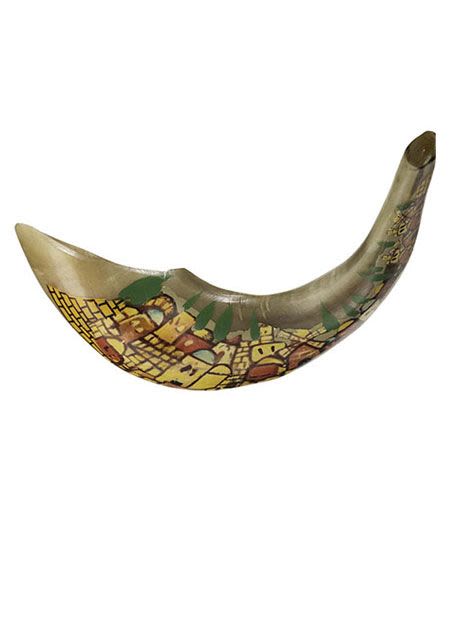
Chayei Sarah: All of Creation Seeks the Tzaddik
It was then midwinter, and the waters of the kingdom were frozen. There wasn't a fresh fish in the entire kingdom...

And the man took a golden nose ring…and two bracelets…And he asked, "Whose daughter are you?" (Bereishit 24: 22-23).
The Torah tells us in the above passage that Eliezer gave Rivka (Rebecca) the jewelry before he verified her identity. How did he take such a risk? Later, when he spoke to Rivka's father and brother, he was forced to alter the story so that they wouldn't accuse him of arranging a match for his master's son with a girl "off the street" of unknown origin. How was Eliezer so sure that Rivka was the righteous intended bride for Yitzchak (Isaac)? With Hashem's loving guidance, the answer to our question lies in the following parable about the shepherd and the fish:
The princess was the King's only child. She was as beautiful as a harvest moon. Her modesty and impeccable character were all the more admirable in light of her superb intellect. She was a master of languages, literature, and sciences. Yet, this exquisite rose had a lone thorn – she refused to consider any of the outstanding marriage proposals that her father received in her behalf.
The bewildered King confronted his daughter: "Dearest, do you have any doubt that I have anything other than your absolute welfare at heart? Why do you refuse every single marital proposal?"
"Your Majesty, beloved father," responded the princess, "please don't think that I'm an ingrate. My entire vitality depends on the portion of fresh fish that I eat on Sabbath; I derive nourishment from nothing else." The princess was always sickly during the winter months, when the fish left the frigid waters of the kingdom and swam south to the warm waters of the great ocean. "I cannot commit to any marriage proposal unless my husband-to-be is capable of providing me with a fresh fish for each Sabbath of the year."
The King acted immediately. It was then midwinter, and the waters of the kingdom were frozen. There wasn't a fresh fish in the entire kingdom. At such times, the princess was pale and melancholy; it had been weeks since she had eaten a fresh fish for her Sabbath repast. The King announced that whoever would bring the best and largest fish to the palace by the coming Sabbath, only five days away, would win the hand of the princess!
The King's announcement became the talk of the entire kingdom. Everyone had an opinion or comment: "Who can possibly pull a fish out of our chilly waters in the middle of February?" Or, "How can the King possibly prefer a fisherman's son to the son of a nobleman?"
The fishermen dreamed of presenting the King with a silver blue rockfish or plump golden tuna. But, they'd have to sail to the ocean to get one, and the round trip alone would take two weeks? Who could possibly report to the palace with a fresh fish by the coming Shabbat?!?
In highlands of the kingdom lived a shepherd. He spent most of his time alone in the hills with his flocks. His needs were few, and he made his small but adequate living from his homemade goat cheeses. The King's proclamation soon reached the shepherd's province; he asked himself, "How can I, a simple shepherd in the hills, find a fish in the middle of the winter?"
The shepherd had an artesian well in proximity to his modest cabin, from which he drew the clear and refreshing waters that sustained him and his flocks. Late that afternoon, just as the shepherd was drawing water for the flocks, he gazed at the exquisite red and gold sunset; the clouds looked like shining threads of fire that wove their way along the crimson horizon. The breath-taking spectacle inspired the shepherd to sing a magnificent melody of praise to the Master of the Universe; who else could create such untold beauty? Mesmerized by the setting sun, he forgot what he was doing. The next time he inadvertently raised his rope-tied wooden bucket from the well, it seemed abnormally heavy. With extra effort, the shepherd brought the bucket to the surface, and…
Behold! A rainbow colored fish with fins and scales weighing no less that five pounds splashed and wiggled in the bucket. A moment after the astonished shepherd once more praised The Creator for his miraculously good fortune, he wrapped the fish carefully and raced to the palace.
No one in the palace had ever seen such a remarkable fish in the middle of winter. The King had one reservation: Could the upright shepherd secure such a fish every single week? The shepherd shrugged his shoulders and told the King that he had made no effort to catch the fish in the first place. Both humble and modest, the shepherd told the king that he could make no such promise; furthermore, he wasn't asking for the princess's hand. He had hastened to the palace for the sole reason of bringing gratification to the King.
"Come with me," said the King, enamored with the shepherd's selflessness and simplicity. "We shall go for a walk together." The King, the princess, and their entourage took the shepherd to the bank of the frozen river not far from the palace. The ice was full of holes from the many efforts of citizens that were searching for fish…
Everywhere the shepherd walked, fish began jumping out of the holes in the ice. Within moments, a ten-pound carp jumped right into the shepherd's arms. "Yes, father! He is my intended! I shall marry the shepherd," exclaimed the princess in glee. The King nodded in royal agreement.
* * *
Reb Natan of Breslev writes (Likutei Halachot, Hilchot Tisha B'Av, 3) that the soul correction of the four foundations of creation stems from the tzaddik.
The four foundations – earth, wind, air, and fire – are the elements that comprise the four different types of creations – mineral, plant, animal, and human. Each of these four types has spirituality on its own level, what we term generically as the soul. Since each creation seeks its soul correction, and the soul correction stems from the tzaddik, then the various creations seek out the tzaddik to attain their soul correction.
In light of the above concept, when Eliezer saw the water in the well rise toward Rivka, just as he witnessed the well water rise toward his master, Avraham, he knew that Rivka was a truly righteous woman and the compatible mate for Avraham's son, Yitzchak. For that reason, he gave her the jewelry before he verified her identity and family ties. May Hashem help each of us maintain strong ties with the true tzaddikim of our generation, amen.










